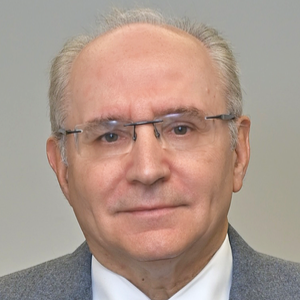Should a Third Party Special Needs Trust Be Revocable or Irrevocable?
By: Anthony J. Enea, Esq.
Planning for a child, grandchild or loved one with special needs involves numerous personalized and unique considerations. While there are different types of special needs trusts (SNT’s), the overall objective of utilizing an SNT for a disabled person is to allow the disabled person to continue to receive (be eligible) for government benefits such as Medicaid and Supplemental Social Security Income (SSI) even though they are the beneficiary of the SNT.
Under federal law, a disabled person is defined as a person “unable to engage in any substantial gainful activity by reason of a medically determinable physical or mental impairment which can be expected to result in death or which has lasted or can be expected to last for a continuous period of not less than twelve months.” If one is receiving Medicaid, SSI or Social Security Disability (SSD), they are considered disabled. New York Estates, Powers and Trust Law requires that the SNT be utilized for the special and supplemental needs of a disabled person, and not their day to day living expenses such as food and shelter. The trustee of an SNT needs to avoid undertaking any action that jeopardizes the beneficiary’s eligibility for Medicaid and/or SSI.
Unlike a first party special needs trust (SNT) which must be irrevocable and is funded with the assets owned by the disabled beneficiary; a third party SNT can be revocable or irrevocable and is created and funded by someone other than the disabled person. Most often, it is created by a parent, grandparent or sibling. The most distinguishing feature of a third party SNT is that the source of the assets used to fund the trust are not those of the disabled person; and that upon the demise of the disabled person and the termination of the trust, the trust assets do not have to be paid back to the government to reimburse them for any benefits they paid.
A third party SNT can be “inter-vivos,” (a revocable or irrevocable living trust) or be a “testamentary” trust (created in a last will) or a sub trust effective after death. However, in all events the spouse of a disabled beneficiary or the parent of a minor disabled beneficiary cannot create and fund “inter-vivos” third party SNT and get the protections under New York Law with respect to government benefits.
Once the decision to create a third party SNT for the benefit of a child, grandchild, loved one or friend has been made, then the creator/grantor of the trust needs to decide whether said SNT will be a separate free standing living trust (revocable or irrevocable) or be a part of their last will and testament (a sub trust therein) for the benefit of the disabled beneficiary.
If the creator/grantor decides that the SNT be part of their last will (testamentary trust), then they have agreed that the trust will not be funded with any or all of their estate assets until after their demise and their last will has been admitted to probate. Generally, the administration of their estate would need to be completed and the executor of their last will has distributed the specified estate assets to the SNT created in the last will. Selecting this option does not allow for any funding or utilization of the assets in the third party SNT until after the creator/grantor’s death.
In most instances I have been involved in, the creator/grantor of the third party SNT has elected to utilize a free-standing irrevocable third party SNT. If the trust is irrevocable other individuals, such as grandparents, close friends, siblings, and other family members, can be encouraged to make contributions to the SNT during their lifetime. They could do so without worrying that they made contributions to a trust that could later be revoked and that their contributions upon the trust revocation could potentially be distributed to someone other than the disabled person.
However, when utilizing an irrevocable third party SNT both the creator/grantor and others making contributions to the trust will need to understand that once the contribution is made, it can not be returned back to them.
The irrevocability of the trust gives to the individuals making the contributions to the trust the peace of mind that their original goal of helping the disabled beneficiary will be fulfilled. The individuals funding the SNT can also experience the disabled person reaping the benefits from the SNT during their lifetime. This of course is also possible if the third party SNT is revocable.
If the creator/grantor of the trust does not want and/or does not believe anyone else will be making contributions to the trust, then they may opt to utilize a revocable third party SNT. The revocable third party SNT would give them the option of amending the terms of the trust as well as making contributions to the trust and if wish to do so return the assets transferred to the trust to themselves.
A revocable third party SNT gives the creator/grantor flexibility. This flexibility could be of great value if there are significant changes in the beneficiary’s conditions and in particular their needs. For example, if the beneficiary is receiving benefits that to a great extent provide for all of their needs presently and it is anticipated that this will be true in the future, the grantor and the trustees could possibly reduce the assets in the trust to a level that is more suitable to the anticipated and current needs of the beneficiary.
In some instances, because of their concern about a disabled loved one, families tend to over fund the third party SNT. In some cases, the likelihood of the beneficiary ever utilizing all of the assets in the trust is minimal. This results in assets in the trust not being utilized, thus, depriving not only the creator/grantor of the funds, but, possibly other family members until the demise of the disabled beneficiary. The revocable third party SNT allows the grantors to remedy this issue.
In conclusion, the decision of whether to utilize a revocable or irrevocable third party SNT requires the consideration of numerous factors. Doing so with the assistance of an experienced elder law and special needs attorney is advised.
Anthony J. Enea, Esq. is the managing member of Enea, Scanlan & Sirignano, LLP with offices in White Plains and Somers, NY. Mr. Enea is chair of the New York State Bar Association’s Senior Lawyers Section. He was named Best Lawyers’ 2019 Trusts and Estates “Lawyer of the Year” in White Plains and Westchester County’s Leading Elder Care Attorney at the Above the Bar Awards.


























